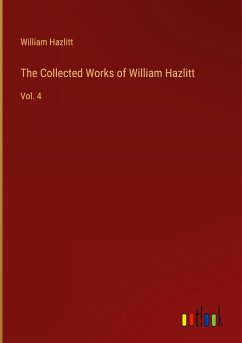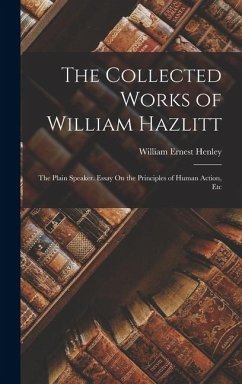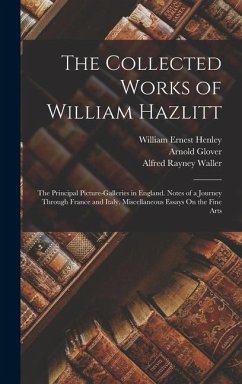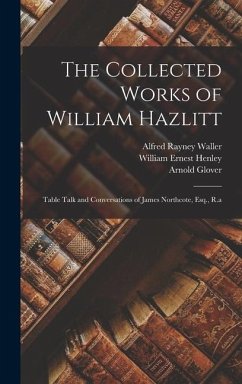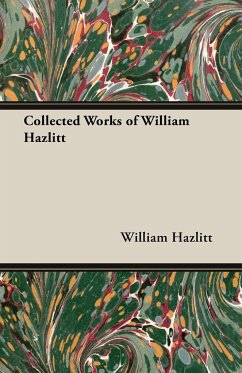
Collected Works of William Hazlitt

PAYBACK Punkte
15 °P sammeln!
This early work by William Hazlitt is both expensive and hard to find in its first edition. It contains a collection of essays on various subjects by one of the unsung masters of the English language. This is a fascinating work and thoroughly recommended for anyone interested in English literature. Many of the earliest books, particularly those dating back to the 1900s and before, are now extremely scarce. We are republishing these classic works in affordable, high quality, modern editions, using the original text and artwork.




